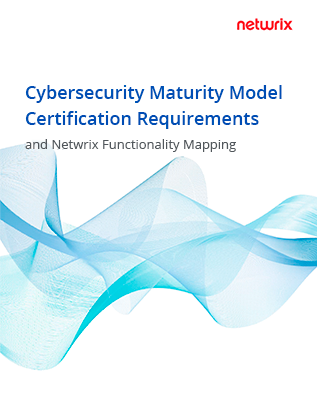Making sure your environment is compliant with regulatory requirements can be a challenge. No matter your company’s size or industry, ensuring you have the required security controls is never a set-it-and-forget-it process. With your IT environment, your user base and the threat landscape evolving all the time, you have to adjust constantly.
Indeed, with so much to keep track of, even your best efforts at keeping your company compliant can fall short, unless you have help. That’s where advanced compliance tools come in.
What is a compliance tool?
Compliance tools are software products that automate or facilitate processes and procedures that businesses must have in place to be compliant with industry, legal, security and regulatory requirements.
Examples of compliance regulations and standards include the Health Insurance Portability and Accountability Act (HIPAA), the General Data Protection Regulation (GDPR) and the International Organization for Standardization (ISO) 27001.
Types of compliance tools
There are many different types of compliance software. Some products are focused on specific industries, while others help with very specific requirements or processes, such as contract management for an enterprise.
It’s often not enough to use a single tool, even if it’s marketed as a comprehensive solution to address everything your company needs. A combination of two or more solutions could be more effective. In fact, tools are often organized into a compliance management system designed to let as little as possible fall through the cracks.
In this article, we categorize compliance solutions into two broad buckets:
- General-purpose software tools
- Tools built for specific requirements of one or more regulations
General-purpose compliance tools
Tools in this category include:
- IT auditing solutions: These tools help prove that appropriate and properly configured controls are present. They can also audit modifications to configurations and see who changes what — as well as when and where changes are made — to prevent unauthorized adjustments.
- Data classification solutions: These tools help with data security by improving content management processes.
- Governance, risk, and compliance (GRC) tools: These tools are used to ensure regulatory compliance with various IT, environmental or financial risk Tools like these tend to be expensive and complex; they provide a rich feature set but involve a steep learning curve for users.
Compliance Tools for Specific Requirements
Depending on the industry and level of compliance expected, some organizations may need very specific compliance programs. Some examples of specific tools include:
- Data subject access requests (DSAR) software tools: Solutions like these help businesses satisfy data access requests from user as required by regulations like the GDPR and the California Consumer Privacy Act (CCPA).
- Consent management software: These tools help websites and apps like email marketing systems comply with GDPR, CCPA and other data privacy laws.
These are only some specific use cases for which companies may rely on the specific tools. Since compliance covers so many industries and regulations, there are myriad applications for compliance software.
Benefits of Compliance Tools
Compliance tools can help your business satisfy regulatory requirements by:
- Identifying regulated data in your environment
- Helping with policy management
- Alerting you to threat patterns
- Identifying gaps in system configurations
The right software can also lower your total compliance costs over time by shortening the period you spend collecting evidence and responding to data requests. All the data an auditor might need is already aggregated and ready to go.
Compliance software increases your efficiency, too. They reduce the time you spend on repetitive tasks by automating compliance processes like change monitoring, reporting and data collection.
How Can Netwrix Help?
With Netwrix solutions, you can achieve, maintain and prove compliance with less effort and expense. They automate processes like change, access and configuration auditing, ensure accurate discovery and classification of sensitive data, and provide insights into your data and infrastructure security. Netwrix also streamlines compliance with data subject requests by automating the data collection process — a crucial and resource-intensive step of every data subject request.
FAQ
- What are compliance tools?
Compliance tools are the software solutions that businesses use to comply with industry, legal, security, and regulatory requirements and standards. These tools make it easy to continually audit user activity, streamline risk management and implement other required controls.
- What are the benefits of IT compliance tools?
IT compliance tools enable change, configuration and access auditing of your IT infrastructure. They automate reporting and alerting, and provide long-term log storage.
- What are the common features of compliance tools?
Some typical features of compliance tools include:
- Change, access and configuration auditing
- Reporting
- Log aggregation
- Data classification
- Security risk assessment and remediation



